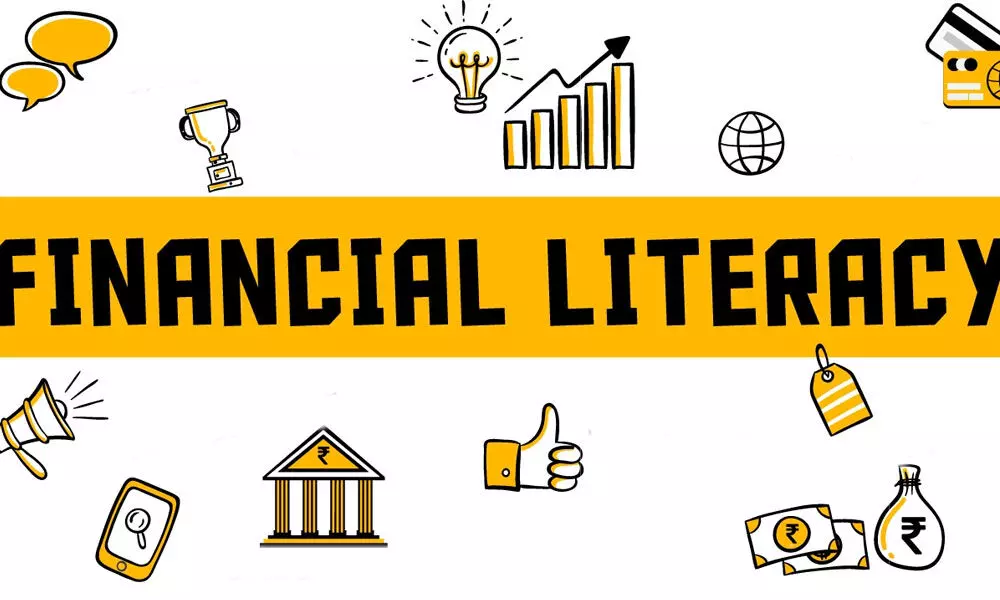Financial Literacy is the aptness to understand and use many financial skills encompassing personal financial management, budgeting, and investing effectively. A strong financial literacy indicates that you won’t face any financial challenges in the future.
In this article, we have covered important information regarding Financial Literacy for College Students, why it is very crucial for college students, and how and where students can increase their financial knowledge without putting extra burden on their minds. So, let’s delve further to discover more about it.
What is Financial Literacy?
The cognitive understanding of financial elements and skills includes budgeting, investing, borrowing, taxation, and personal financial management. Those who lack these skills are referred to as financially illiterate. Financial Literacy lowers the chances of economic suffering and holds up many life goals, including savings for education and retirement, running a business, and using debt effectively.

In other words, it is the foundation of your relationship with money and successfully applying it to your life. Financial Industry Regulatory Authority (FINRA) depicted that more than 66% of Americans are unaware of financial knowledge. Unfortunately, it is decreasing rapidly in America, especially among college students.

In today’s time, where everything has been shifted to digital, everyone needs to understand and gain financial Literacy effectively. It is very crucial for college students as they face economic challenges, and learning basic financial skills can save them from being scammed and change their complete adulthood. They will also learn how to manage their expenses if they are not too financially strong. It has become very easy to learn about finance as advanced technologies have made it easy.
What are the benefits of Financial Literacy?
In the above section, we have discussed financial Literacy, but it is very important to know its benefits. So, below are some benefits of knowing finance.
- Financial Literacy increases the capacity to make better financial decisions.
- It teaches you the management of money and debt.
- It decreases the extra spending via better management.
- It lowers financial stress and anxiety.
- It helps in the productive creation of an organized budget.
- It increases the decision-making ability when opting for insurance, loans, investments, and using a credit and debit card.
- It increases the achievement of financial goals.
- It prevents devastating mistakes.
- Financial Literacy prepares you for any emergency.
- It also increases your confidence.
Also read: What’s the Current State of Biden Student Loan Forgiveness?
The Components of Financial Literacy
Congress initiated the Financial Literacy and Education Commission under the Fair and Accurate Credit Transaction Act of 2003. As financial Literacy among Americans is decreasing so Congress gave the responsibility of creating policy initiatives to the Commission so Americans can learn more about finance and become capable of making financial decisions.

The Commission started a national financial education website named MyMoney.gov. So they could get successful in their motive. They established five basic and important financial literacy principles. Have a look at the principles.
- Earn
The most important part of Financial Literacy is the capacity to earn money. If you can’t make money, you can face many problems. But above all these, it is very crucial to understand what happens to the money that you make comprising:
- The amount you take home on your income.
- The interest your employer offers.
- The amount you pay in taxes and what happens with that money.
You need to learn about the points mentioned above before joining work, whether permanent or temporary. Many students do part-time work during high school. So, it is also important for them.
- Save and Invest
Saving and investment are other major component of financial education that everyone should learn. It includes everything from how to open a Saving account and how to save money for the future.
There are other components that come in this category are:
- A proper plan for short and long-term Saving and investment.
- Consult with financial experts.
- Investment for future expenditure.
- Keeping an eye on investment and saving accounts.
- Paying yourself first.
- Protect
Another fundamental principle of Financial Literacy includes the potential to protect yourself from financial loss. College students must learn the protection of accumulated money. Money insurance is considered the best way to protect your finances as it saves you money from loss and gives you more than you invested.
- Spend
How you spend your money wisely is the most important component of financial Literacy. It is what everyone should know, whether it is old or young. It also includes how you manage your means and make educated buying decisions.
- Borrow
Borrowing is undoubtedly the most important component of financial Literacy. How you borrow money and pay it back is more important than taking a loan. It begins with learning credit scores and credit reports, too, when it comes to applying for credit. A lack of knowledge in this field can put you in big trouble.
Also read: President Biden Student Loan Forgiveness Program [Full Story]
The Importance of Financial Literacy for College Students
College students need to learn and understand basic financial skills and concepts as they are expected to maintain their expenses themselves and do every finance-related work. Earning and spending money, budgeting, saving, and paying off debt depends on how knowledgeable a college student is in finance.

Below are some major points that depict how it is impacting badly on those who don’t have knowledge in this field.
- More than half of the students are now suffering because now they are not capable of paying back their student debt loans.
- More than half of U.S. households have credit card debt of $7,000 and more than $27,000 of auto loan debt.
- The gap between the high-income and low-income earners is increasing. It is with those who hold a college degree as well as with those who don’t hold a college degree.
- Saving rates are decreasing. Half Americans have saved funds for emergencies, but more than 40% don’t have a single buck in their bank account to cope with emergencies.
A Financial Industry Regulatory Authority study showed that only 34% of Americans could answer four of five basic questions related to finance. The rate has gradually decreased, and it occurred in Americans who are in the 18-34 age range.
- Student loan is increasing
The debt crisis is the most significant issue that college students face. The total student debt has increased by $1.6 trillion, with more than 45 million individuals possessing money. Of the American students who completed their graduation in 2019, more than 70% of them took student loans to complete their studies, whereas more than half are in debt. It is not decreasing but only increasing.
- Retirement income is not guaranteed.
It is not confirmed whether the students will be paid their retirement fees or not. The current reserves are only enough to pay for benefits through 2037. As a result, the reserve will finish, and the administration will be able to create 76% of scheduled payments. It can be changed when there is a change in the policy. So, young people don’t have more options for their retirement plans.
- Income is stagnating or falling.
There are so many graduates in America who have completed their graduation but are still not capable of making money. A recent study conducted by Pew Research Center shows that wages for young workers have hardly increased over the past 50 years. College-educated workers make the same money as college-graduated people did in previous generations. The primary reason behind this is the lack of financial literacy knowledge.
How to Increase Financial Literacy for College Students
In today’s time, Financial Literacy should increase among young people more than before, but it is decreasing among them, especially among Americans.

So, here the question arises is how it can be increased among College students. This section has covered the same, so read to know more.
- Take advantage of government resources.
The Fair and Accurate Credit Transaction Act of 2003 created its Financial Literacy and Educational Commission. The primary motive behind the establishment of the Commission is to increase Financial Literacy among Americans, especially college students. It provides a website that helps people learn about basic financial concepts. Some agencies, such as the Consumer Financial Protection Bureau and the U.S. The Securities and Exchange Commission also publishes Financial literacy articles so Americans can learn and understand this.
- Look at local non-profit organizations.
Some non-profit organizations offer financial coaching services without any charge. So, college students can learn about finance from these non-profit organizations.
- Free online Financial literacy resources for college students
College students can increase their Financial literacy knowledge via online resources as there’s no shortage of them. There are so many websites that have blogs related to it.
- Take a finance course in college.
College students can take finance classes in college as every college provides such classes.
Conclusion
There you have it. This article covered every aspect of Financial Literacy as we know how important it is in today’s time. But it is decreasing among the youth. Government organizations, non-profit organizations, and local governments are very well aware of financial literacy. College students and others also can follow the tips mentioned above to increase their knowledge in the finance field.
Enter your email to stay updated with offers
If you can’t see the form above, click here to open the form.







Add Comment